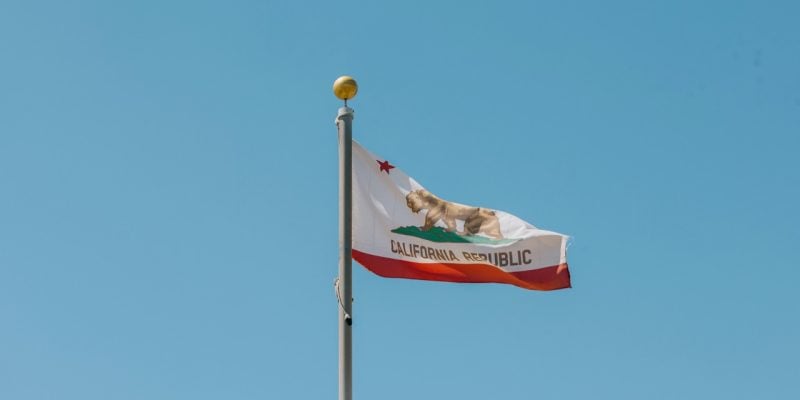The most populous state in the US could soon add sweepstakes casinos into the same category as almost all other forms of online gambling: illegal.
California’s Assembly Bill 831, which bans sweepstakes casinos, cleared its first two legislative hurdles when it advanced through the Senate Governmental Organization and Public Safety Committees.
Assemblymember Avelino Valencia introduced the anti-sweepstakes legislation into AB 831 in June with support from the state’s tribes, which have exclusive rights to casino gambling in California.
The bill prohibits “dual-currency” systems, a model sweepstakes casinos have been using to differentiate themselves from traditional online casino operators and thus stay open for business for Californians.
CA could go from few options to none
When sweepstakes casinos first opened their virtual doors for business, they faced little to no pushback across most US states. Because they did not offer direct real-money gambling, the operators felt that they fell under sweepstakes laws and did not need to follow requirements to pursue licensure state by state. That made sweepstakes casinos another option for residents in markets that already had real-money online casinos. And of course, they they helped fill the void in states without other legal gambling options, like the Golden State.
The problem that their model is running into is that they also do not have the same tax requirements as regulated options. In other words, states don’t have a means to collect a piece of sweepstakes casino revenue. In California, that translates to hundreds of millions of dollars in missed tax revenue.
That nine-figure windfall can potentially occur under one of two conditions. First, the state could regulates sweepstakes casinos. Or, tribal gaming can potentially realize the entirety of that additional revenue from banning them.
The tribes, of course, are hoping for the second option. They oppose a regulated sweepstakes casino industry, believing it undermines their gaming clause with the state. They say sweeps sites negatively impact revenue, which is vital for many tribes, and threaten many casino workers’ jobs.
In truth, tribes will never realize all the money left on the table if the state bans sweepstakes casinos. Californians who live close to a brick-and-mortar casino could transition easily, but a significant number of residents need to travel to gamble, and thus would either find themselves on the sidelines or unable to play as frequently. But supporters of the sweepstakes ban counter that even if the state only collects a portion of the gaming revenue currently going to sweeps sites, it’s more than the zero California currently receives.
Sweeping penalties for violators
AB 831 prohibits sweepstakes casinos on multiple levels, making them illegal to operate, conduct, offer, support or promote. Violators would receive a maximum fine of $25,000, imprisonment of up to one year in county jail, or both the fine and imprisonment.
The verbiage includes individuals, entities, financial institutions, payment processors, gaming content suppliers, platform providers and media affiliates.
As it stands, this would include celebrities endorsing sweepstakes casinos, such as Drake (Stake.us), Paris Hilton (WOW Vegas Casino) and Ryan Seacrest (Chumba Casino).
If the ban passes, reputable sweepstakes operators would likely comply and leave the state, effectively killing California’s sweepstakes casino industry.
Sweepstakes casinos involve more risk?
In addition to operating in more markets than regulated casinos, sweepstakes casinos do not face the same legal oversight as their regulated counterparts.
Opponents argue that this raises concerns. Those who support the ban ays that since many sweepstakes casinos operate offshore, they may not have safeguards in place to ensure the security of players’ funds and personal information. They also may not comply with other restrictions that regulated casinos have for age verification, KYC and anti-money laundering compliance, and promoting responsible gambling.
That said, dozens of reputable sweepstakes casinos operate in California. While they are not all created equal, our reviews confirm these sites have a track record of providing legitimate games and fulfilling prize redemptions within their stated timeframes.
Many sites have longstanding track records, and plenty of players will deem any potential added risks from playing at sweepstakes casinos worth the convenience and entertainment value. Or, players can choose to play without ever making a purchase.
However, the opportunity for Californians to choose to play at sweepstakes casinos will vanish if AB 831 becomes law.
More hurdles lie ahead for AB 831
With its passage through the state’s Senate committees, AB 831 will now move to the Senate floor for discussion and a vote. If amended, it would return to the Assembly.
The Assembly passed the bill unanimously, 77-0, in May. However, that version of AB 831 did not include the ban on sweepstakes casinos.
Two organizations representing sweepstakes casinos, the Social and Promotional Games Association and the Social Gaming Leadership Alliance, have expressed concerns about the bill’s language.
The SPGA called it a “backroom ban on promotional sweepstakes” and said it was a last-minute effort to prohibit them “without public debate, expert input, or economic analysis.”
The two groups also said the ban could affect other companies’ promotions, including Marriott, McDonald’s, Microsoft, Reader’s Digest and Starbucks.
The California legislative session runs until Sept. 12. Any open bills can carry over into the following year.
Nationwide momentum for sweepstakes bans
California was the tenth state to discuss sweepstakes casino prohibition in the 2025 legislative sessions.
Connecticut, Louisiana, Montana, Nevada and New York lawmakers all passed bills to ban sweepstakes casinos. Louisiana Gov. Jeff Landry ended up vetoing the bill in that state, citing existing procedures to target illegal operators. Four days later, Louisiana sent cease-and-desist letters to more than 40 sweepstakes operators, essentially banning them without the need for legislation.
Anti-sweepstakes bills in Arkansas, Florida, Maryland, and Mississippi failed to advance through their respective legislatures. Those discussions will reignite in 2026, and additional states will undoubtedly join the conversation.








